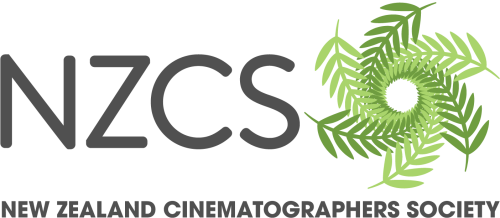What is the Screen Industry Workers Act? The Screen Industry Workers Act (SIWA) provides a new model, developed by industry and supported by Government, to allow screen industry contractors to bargain collectively. The Act came into force on 30 December 2022. SIWA is designed to restore the right of screen workers to collectively bargain, and to establish enforceable contracts with mandatory terms. SIWA is for contractors in the screen industry only. Employees in the screen industry, carry on!
What can SIWA do for technicians in Camera? SIWA brings technician representatives, and producers representatives, to the table together to work out some basics (called Mandatory Terms or Minimums in the Act) that must go into every contract. These basics will be agreed and cannot be left out of any contract, so every writer will benefit from them. These basics don't mean that everyone will get paid the same - technicians can still negotiate their own terms based on experience and skill - what they do mean is that no writer will be offered payment or terms that fall below an agreed minimum. To offer less money or worse conditions would breach what has been agreed and would be unlawful. In that way, the collective bargain is a safety net and protection for all camera crew - we are no longer individuals negotiating for ourselves, we are part of an occupational group (technicians) who are entitled to agreed minimum payment and conditions. We can negotiate upwards of this agreement, but we cannot negotiate below the mutually agreed minimum terms. That is the power of collective bargaining. 'No camera person left behind!' Who does SIWA cover? SIWA covers the following screen industry workers, they are called Occupational Groups in the Act: COMPOSER - Individuals who create or modify musical compositions for screen productions. DIRECTOR - Individuals who direct the making of screen productions by visualising scripts while guiding performers and technicians to capture a screen production’s vision. GAME DEVELOPER - Individuals who work on, or contribute to, computer-generated games and who do not fall within the description of the composer, director, performer, or writer. PERFORMER - Individuals who portray roles in screen productions, including stunt persons, narrators, voice-over actors, extras, singers, musicians, and dancers. WRITER - Individuals who write, edit, contribute to, and evaluate scripts and stories for screen productions. TECHNICIAN (POST-PRODUCTION) - Individuals who work on, or contribute to, screen productions during the post-production phase, and who do not fall within the description of any other occupational group. TECHNICIAN (PRODUCTION) - Individuals who work on, or contribute to, screen productions before the post-production phase, and who do not fall within the description of any other occupational group. Where do Cinematographers & Camera crew fit in? Screen production technicians represented by the NZCS fall within the Technicians (production) group. What types of work does SIWA cover? SIWA covers the following types of screen productions aka work:
The Act DOES NOT cover the following types of work:
What is collective bargaining? Collective bargaining is the process used to negotiate collective contracts. Collective contracts are contracts between occupational groups and engagers. In the screen industry engagers will be the Producers and Production Companies you normally work with, they will be represented by SPADA. SIWA enables representative organisations to collectively bargain contracts on behalf of the occupational groups. For example, The Screen Guild is Aotearoa's largest organisation representing technicians, they will collectively bargain / negotiate on behalf of the technicians and SPADA would be negotiating on behalf of the Producers as the engager. What is in a collective contract? Under SIWA there are three types of collective contracts, they are: Individual Contracts - between an individual screen worker and an engager Enterprise Collective Contracts - collective occupational agreements on an individual project / production Occupational Collective Contracts - collective agreements across occupational groups All three types of contracts must contain mandatory terms. These are terms that the engager cannot opt out of or negotiate below, they are:
Is SIWA optional? These changes are not optional. They’re law. They must be abided by.
What next? Learn more about SIWA. Download The Screen Guild SIWA handbook The Screen Guild have also compiled a list of frequently asked questions (FAQ's) as a supporting document to the SIWA Handbook for Screen Workers. Click to download below FAQ's. Read the emails and communication sent out by NZCS, we will update you on progress and further steps! |








